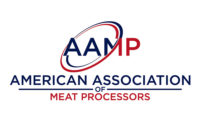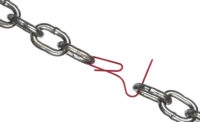The question we asked ourselves was: “who needs to know this information and when?” The immediate concern was whether we should be leaving our meeting and going directly to the president of this customer’s firm. That is when this particularly astute food safety expert commented “You cannot not know what you now know”. She then talked about how it would be putting their president and company at risk if the president was informed and did not take immediate action. In our case the customer acted.
Unfortunately, this question is one that the food industry deals with daily. Let me explain: Everyone in the food industry knows that Listeria is rampant in grocery stores and butcher shops across the retail segment. To my knowledge Listeria is the leading cause of deaths related to food borne illness in North America. I know the governments in North America are aware of this statistic and yet we continue to serve food products.
Why would we do this? It’s pretty obvious, there are risks associated with food and we have very safe channels for getting products to consumers. We all know there are risks yet how do you react to the percentage risk of all the “baddies”, such as: Listeria, E.coli, Campylobacter, Salmonella etc…
I believe anyone in the government or food industry would find it challenging to say out loud that the risk exists. They know where it is most prevalent, yet they still continue to let products out to consumers in the market. Their reputation, jobs, and livelihoods could be put at risk by public perception or reaction. In other words, if we admitted that we now know what we know, we would not be in a position to deny it and save our character. Thus, "you cannot not know what you now know". So now what?
The government should not be the police force and they are not the ones making the product. We as experts in the industry need to have the courage to employ best practices wherever it would be most impactful and have the courage to take these actions whenever we become aware. In order to act on these risks, it is the industry's responsibility to use a combination of common sense and science and not hide behind excuses like "the government hasn't approved the practice", "my supplier won't provide to me if I insist on these standards", "it costs too much", and the list goes on. Enough.
The responsibility and the initiative belongs to each of us and collectively. If we can put people on the moon and reside in space stations, we can certainly clear these sorts of hurdles. You may tell me the government put people on the moon yet when it comes down to it, it was creative people employing creative thinking that created the solutions.
In Cardinal's case, we proved to the government and demonstrated to suppliers that the cost benefit was essential and using science-based learnings...you can too. It only takes determination, passion and to quote Einstein "the significant problems we have cannot be solved at the level of thinking with which we created them"...step up.



Report Abusive Comment